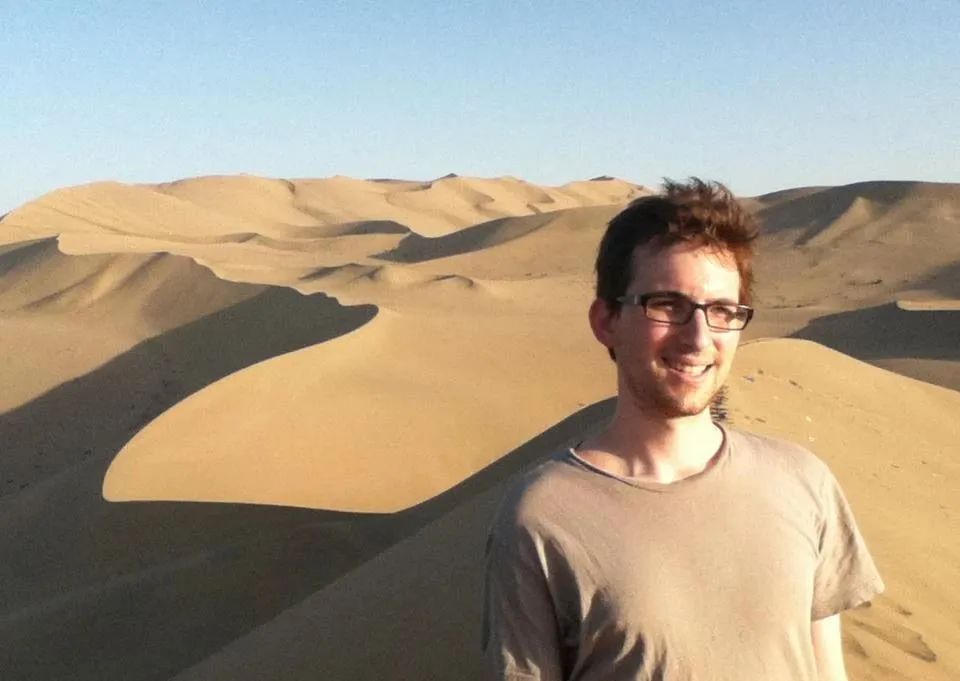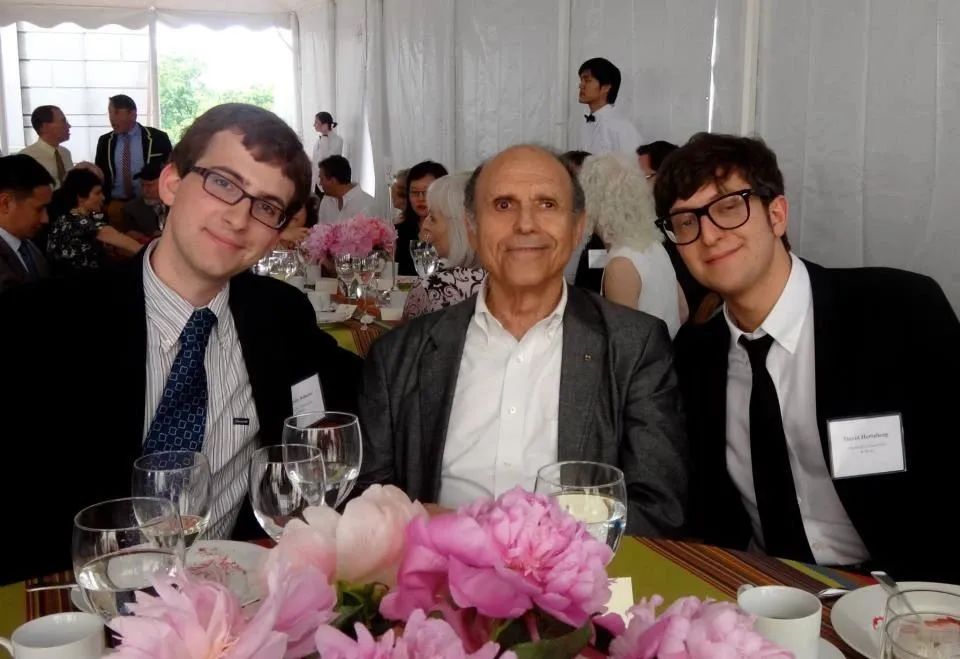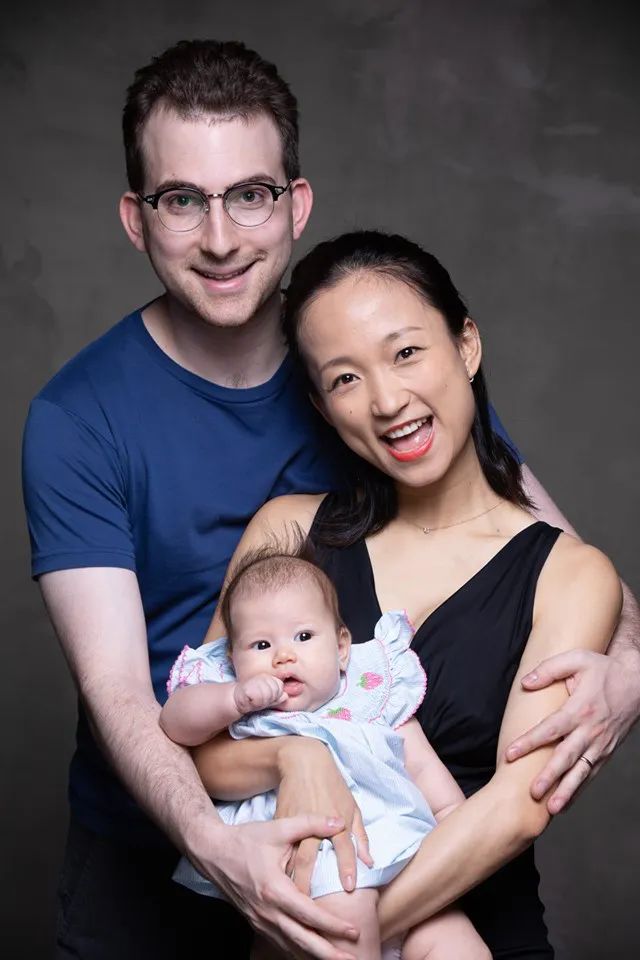American educator and composer Niccolo Athens teaches composition to Pre-College students at Tianjin Juilliard, and will teach ear training to the incoming students of the inaugural Graduate Studies class this fall. Athens shared his story, an intertwined journey of composing music and his keen exploration of Chinese culture and music.
Born and raised in San Antonio, Texas, Athens started studying the viola in elementary school when he was eight. When he was 13, he spent the summer playing viola in the orchestra at Interlochen, a music summer camp in Michigan. It was transformative for him and for the first time, he met peers who were also passionate about classical music. Athens returned home to Texas and joined the local youth symphony, and from then on, he attended music summer programs every year.
He first visited China during the summer of 2010, travelling to many places including Shanghai, Zhejiang, Yunnan, and Sichuan. It was the same year that he received his bachelor of music in composition from The Juilliard School, where he studied with Samuel Adler. After that initial visit, Athens found many opportunities to return to China, including participating in a composition workshop at the Central Conservatory of Music in 2012, and spending an academic year in residence at the Central Conservatory in Beijing as a Fulbright scholar in 2014. At the Central Conservatory, Athens observed Chinese composer Ye Xiaoguang’s lessons with other students on vocal works, which gave him valuable ideas for how to set the Chinese language to music. This was important when Athens worked on a Chinese version of one of his operas later on. From Texas to Tianjin, Athens has developed a fulfilling career combining his love of music with an interest in modern China.
When did you start composing music?
I can’t remember exactly when I really began to compose for the first time. It could have been around the time I went to Interlochen. One of the musicians in the Klezmer band that played at my Bar-Mitzvah gave me a copy of an old notation software, and this helped to get me going (now, I compose by hand). Because I had essentially no piano skills at that point, I did not have a natural understanding of harmony. I remember writing a string quartet early on with all of the parts written in the alto clef! However, I had a strong desire to create, and I was composing a lot of music, even if it wasn’t any good. I wrote 20 or 30 harpsichord sonatas, attempting to compose in a Baroque style. I must have spent many hours every day after school working on these pieces.
When I was a freshman in high school, there was a senior who was also a composer, and I would constantly send him midi files of the pieces I was writing. He knew quite a bit of theory, and was very patient with me – I learned a lot from him. The next year, I asked my parents to find me a composition teacher, and I began studying with a professor at a local university. From then on, my progress was quite rapid, and by the time I graduated high school I was able to win a young composer competition hosted by the San Antonio Symphony, which performed one of my works (a tone poem in a sort of mixed Debussy/Sibelius style) several times that summer.
Do you have a creative routine?
My creative routine usually begins with a deadline! Then there are many hours of hard work at the piano with a pencil and staff paper. Composing is generally not a matter of waiting for inspiration. If you never sit down to compose, the piece will never be written. Many composers have said similar things, because it’s true, at least for most artists. When a piece is going well and seems to be really coming together, it can be an almost uncomfortable experience. Sometimes I get nervous or excited, and keep running through various possibilities in my mind so that I am unable to get to sleep. I worry that I will lose my notebook, or that something will happen to prevent me from finishing the piece.
You attended Chinese classes at Columbia University in 2009. How did you develop an interest in learning the language?
This is a long story! I was interested in China from a relatively young age. One of my best friends in high school was Chinese American. His parents had moved to the U.S. from Shanghai in the 1980’s. I loved to go over to his house after school to hang out and eat dinner. Of course, I enjoyed the food, which was different from what I was used to eating in Chinese restaurants in Texas, but I was also very impressed by the extended family structure, with the grandparents living together with them in the same home, how they ate dinner together as a family every night, and also how they were able to grow so many Chinese vegetables in their yard. I recall being amazed by a huge winter melon! This was my initial impression of Chinese culture.
I read Peter Hessler’s book, Rivertown (in Chinese it’s called 江城) and it sparked my interest in Chinese language. This book is a memoir of his time living in a small city on the Yangtze, before he became the China correspondent for The New Yorker. I was completely captivated by this book, which I have re-read many times since. Hessler’s description of learning the Chinese language and his vivid description of life in a small city in China in the 1990’s impressed me. During my senior year at Juilliard, when I had the chance to take a humanities elective at Columbia, I jumped at the chance to learn Chinese! I took the 1 train from Lincoln Center up to Columbia four days a week for the entire academic year. I enjoyed learning the language so much that I decided to stick with it when I was in graduate school at Cornell. I have been very lucky to have really excellent Chinese teachers over the years!
How much do you know of Chinese traditional music and the development of Chinese modern music?
I know the Chinese instruments pretty well, and I have had the chance to compose for quite a few of them by now (Guqin, Sheng, Erhu, Pipa, and Ruan), but I would never claim to be an expert on traditional Chinese music, having picked up whatever knowledge I have in bits and pieces over the years. I had a really enjoyable time writing a few works based on Chinese folk-songs, but I mostly approach these projects through my own musical language. I have thought a lot about the history of Western classical music in modern China though, and I think I am pretty familiar with how this history has unfolded over the course of the twentieth century. It has been a great pleasure to get the chance to know some of the protagonists in this fascinating story since moving to China.
How would you describe your teaching style?
I have a very hands-on approach to teaching composition, which I probably got from my teacher at Juilliard, Samuel Adler. My own undergraduate experience at Juilliard was so wonderful. I am truly honored to be able to play a part in passing on this pedagogical legacy. When students seem stuck, I like to give them very specific, technical challenges to address in their music, and provide concrete suggestions on how to develop their material. Often, I will lead a student through an analysis of a particular piece from which I think they have something to learn. For a self-motivated composition student, this tends to increase the breadth of their creativity, rather than limit it in the long run. At the same time, a composition teacher must be aware of each student’s individual nature, and try to cultivate what is unique in each young composer’s personality as much as possible. It’s a balancing act. It is also very important that composition students listen to as much music as possible, so that they can start forming an impression of the canon, and also become familiar with modern styles. I hope that my students can be self-motivated in this regard – I certainly was, at a young age! At times, I have assigned students pieces to listen and take notes, if I think they need it.
How did you end up using 刘家承 as your Chinese name?
When I first decided to study the language, a Chinese friend came up with the name 家承 (Jiā chéng) for me. When I started Chinese class at Columbia, it just so happened that the names of the characters in our introductory Chinese textbook were 李家琦and李家兴. So my teacher decided to call me 李家承 to match it. Even though the characters are different from 李嘉诚, I didn’t realize until later when I came to China that this was pretty much the equivalent of a Chinese person choosing Bill Gates for their English name. To avoid people laughing at my Chinese name, I eventually decided to change the family name to 刘, to match my wife. So, 刘家承!


